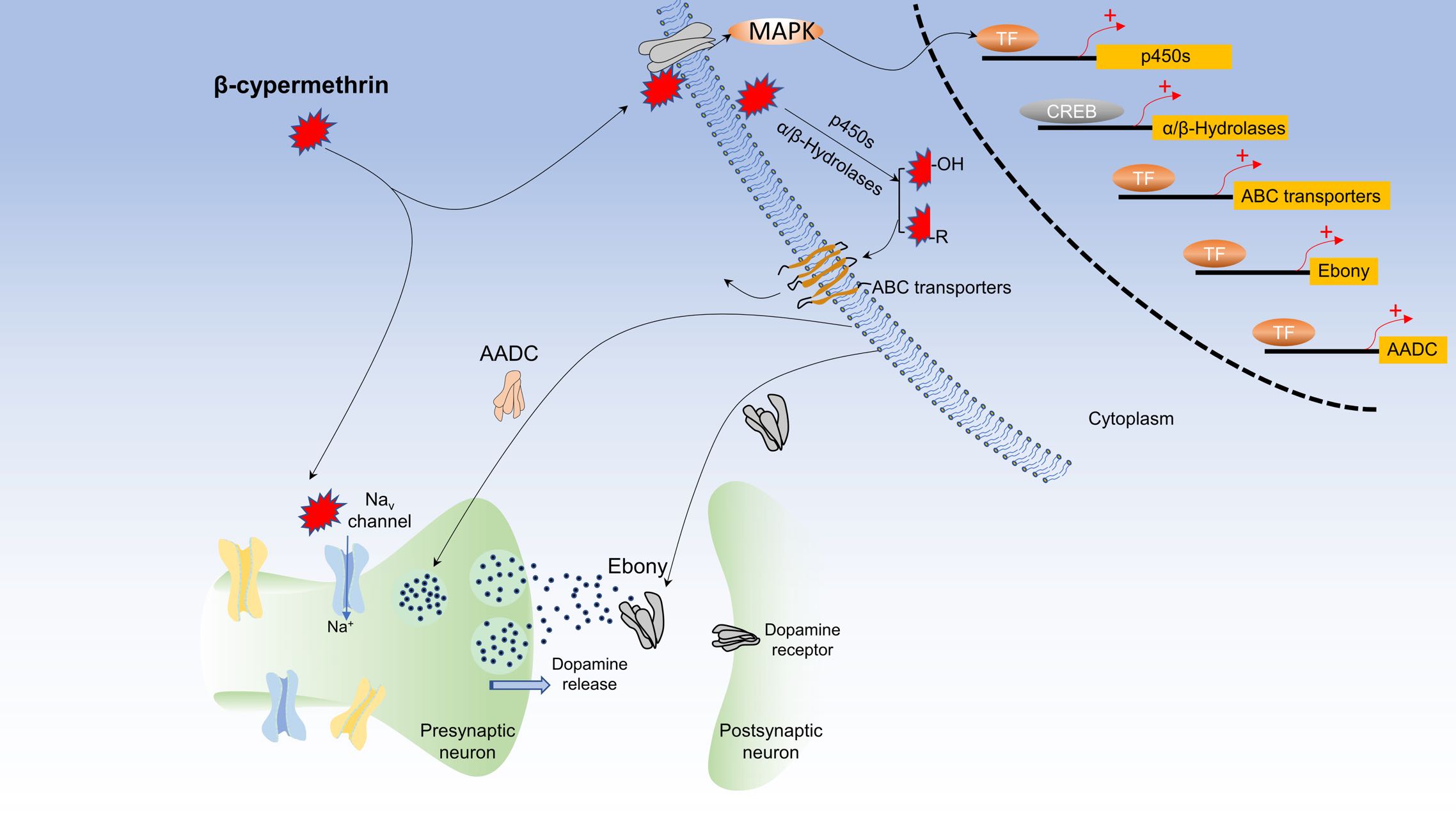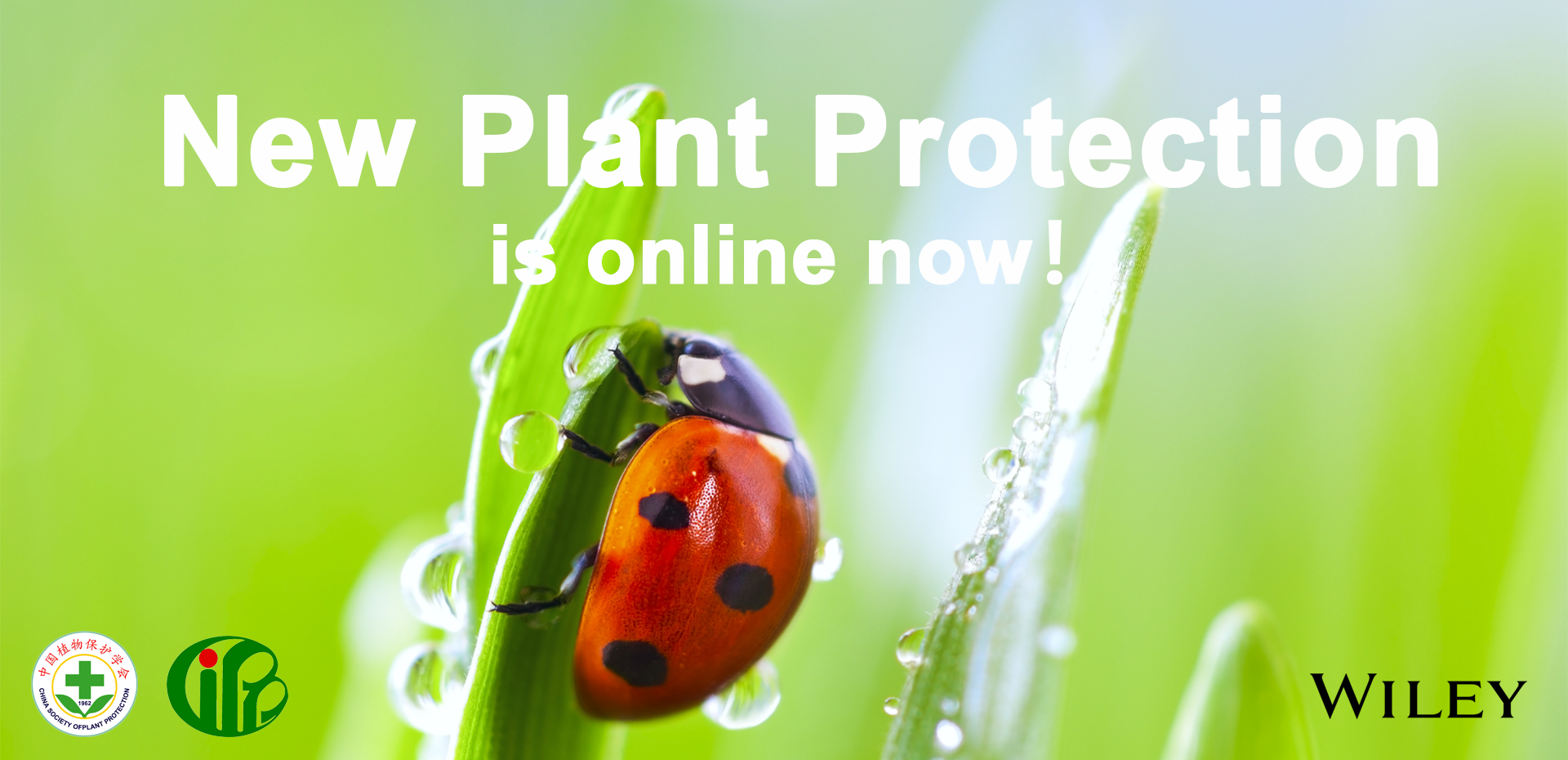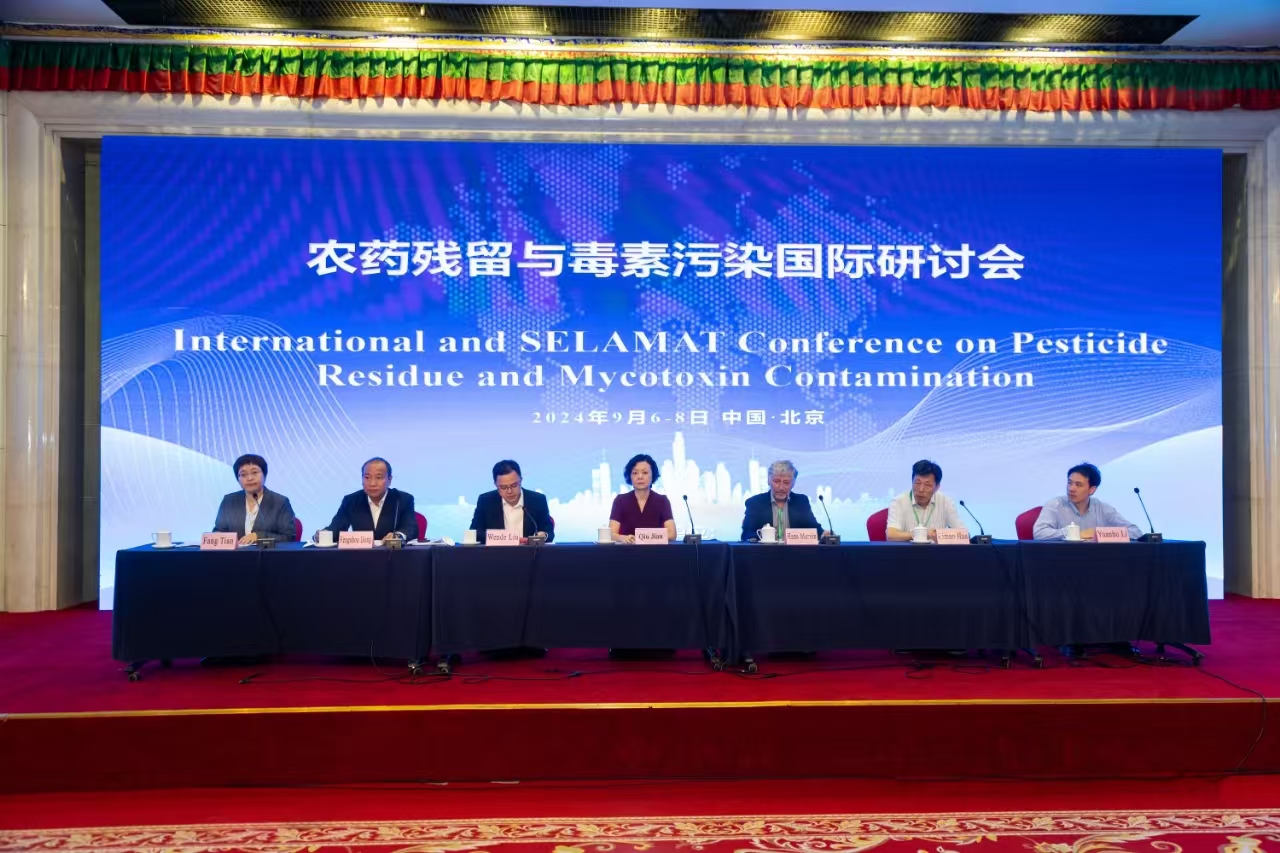IPPCAAS scientists revealed the detoxification and neurotransmitter clearance jointly drive insect recovery from insecticide exposure
The Sino-American Biological Control Laboratory of Institute of Plant Protection, Chinese Academy of Agricultural Sciences (IPPCAAS), recently published a research paper titled “Detoxification and neurotransmitter clearance drive the recovery of Arma chinensis from β-cypermethrin–triggered knockdown” in Journal of Hazardous Materials. The study provided mechanistic insights into the detoxification and neurotransmitter clearance that jointly drive insect recovery from insecticide exposure.
Almost all chemical insecticides exert side effects on non-target organisms, such as natural enemies. Natural enemies of arthropods contribute considerably to agriculture by suppressing pests, particularly when combined with chemical control. Studies show that insect recovery after insecticide application is rare. In this study, the authors discovered the recovery of the predatory bug Arma chinensis from knockdown following the application of β-cypermethrin but not five other insecticides. A. chinensis individuals were more tolerant to β-cypermethrin than lepidopteran and coleopteran larvae, which did not recover from knockdown. The authors assessed A. chinensis recovery by monitoring their respiration and tracking locomotion through the entire process, then identified and verified the trans-regulation of detoxifying genes, including those encoding cytochrome P450s and α/β-hydrolase, which confer recovery from β-cypermethrin exposure in A. chinensis, by mitogen-activated protein kinase (MAPK) and cAMP response element binding protein (CREB). Furthermore, the authors discovered a novel mechanism, the neurotransmitter clearance, in vivo during the recovery process, by which the insect initiated the removal of excessive dopamine with a degrading enzyme ebony. This study suggests screening for insecticide-resistant predators and parasitoids should be more conducive to promoting compatibility in pest management programs and ensuring the successful use of biological control agents in combination with pesticides.
This research was financially supported by the Sino-America Biocontrol International Cooperation Program (59-0212-9-001-F).

More details can be found at the link below:
https://doi.org/10.1016/j.jhazmat.2024.135175
-
 China-Laos Training Workshop on Integrated Management of Destructive Crop Pests and Diseases Successfully held in Laos
China-Laos Training Workshop on Integrated Management of Destructive Crop Pests and Diseases Successfully held in Laos -
 New Plant Protection: New challenge and new opportunity for plant protection
New Plant Protection: New challenge and new opportunity for plant protection -
 International and SELAMAT Conference on Pesticide Residue and Mycotoxin Contamination Held in Beijing
International and SELAMAT Conference on Pesticide Residue and Mycotoxin Contamination Held in Beijing -
 CAAS President Meets Chairman of ASEAN FAW Taskforce
CAAS President Meets Chairman of ASEAN FAW Taskforce
